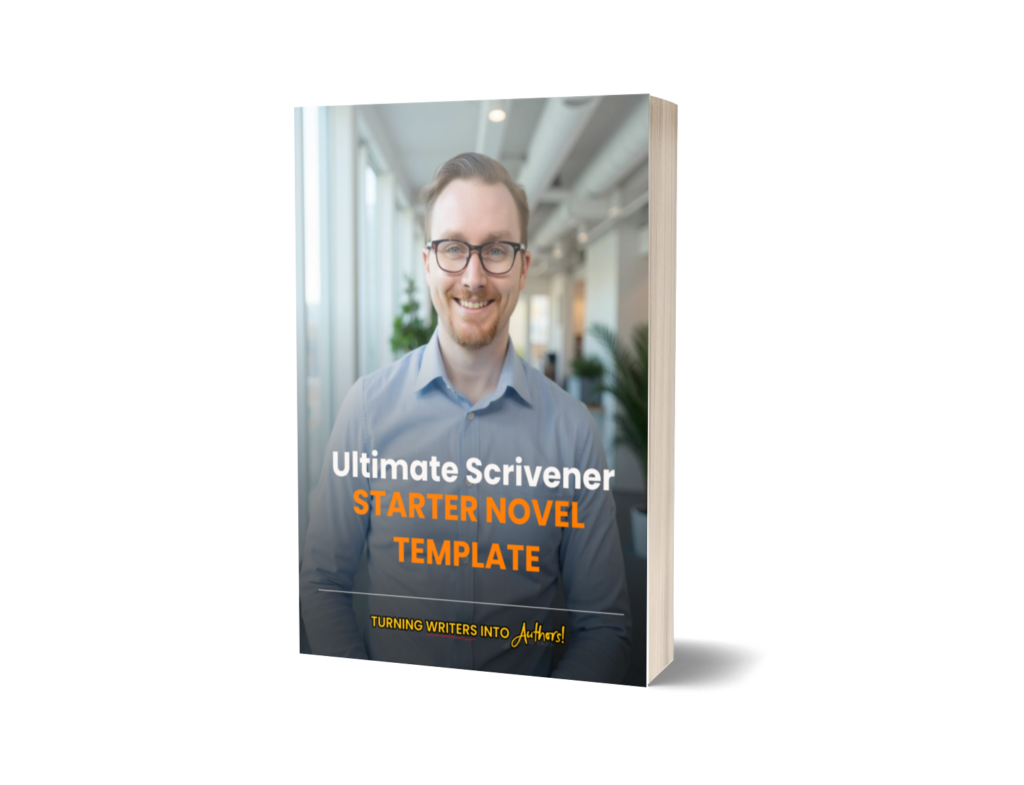
Oliver Evensen
Turning Writers into Authors
Table of Contents
A Note to Readers
These are the book notes I took while studying “Your First 1000 Copies: The Step-by-Step Guide to Marketing Your Book (2nd Edition)” by Tim Grahl and listening to his audiobook. Tim’s book is the best book on book marketing I’ve ever read, and highly encourage you to purchase it and the audiobook, especially if you enjoy of my book notes!
In most cases, I have paraphrased and included my own personal thoughts I recorded while studying the material, and aimed to properly mark all direct quotations, but writers please consider that these are “notes” not a research paper. My goal is to share what I’ve learned and apply the skills, and not to write a scholarly article. So if something doesn’t make sense, leave me a comment, or better yet grab a copy Tim’s book! You won’t regret it. And if you want to keep receiving great content like this signup for my newsletter and as a bonus you’ll receive my Scrivener Starter Novel Template for free!
Chapter 2: What is an Author Platform
What is the goal of this chapter?
Tim’s goal in this chapter is to provide a clear definition of an author platform so writers can set to work building their platform, which is how we achieve the two-fold definition of marketing: building long-lasting connections and providing relentless value to our fans.
Core Ideas
I identified 4 cores ideas and a question in the second chapter of Tim’s book. I have always had a clear understanding of the importants of having a platform. In fact, I’ve been working on building a platform through trial and error over the past 7 years with some small success. Thankfully Tim’s ideas in this chapter clearly outline where I should be focusing my efforts.
- Publishers will want to hear about your author platform before your book.
- This is news to me, since I always believed that publishers would help me establish that part of the job.
- So even if I managed to get a contract with a publisher, it’s clear to me that I need a platform.
- Publishers only really care about “how many books I can sell?”
- It’s a lot easier to invest in an author that already has an audience.
- If you’ve already have people lined up to buy your first book as a debut author, then it’s a much easier sell for you and the publisher.
- The Author Platform is the method by which we sell books!
- It’s our plan to get people/fans to buy our books/products.
- Analytics, or the numbers, are indicators the potential books we might sale.
- If we have a large email list, lots of blog readers, followers on social media, etc…, then that’s a large pool of fans who may just buy our book.
- The goal is to build an author platform, or a way to sell books, in a way that supports our writing career and grows over time.
- This isn’t a get-quick-rich scheme. We’re aiming to build a brand over time that ideally grows with us.
- So it’s a good idea to get started today! And you’re at an advantage if you haven’t even started your book yet.
"This book is about building an author platform—a way to sell our books—that supports our entire writing career and grows over time."
TIM GRAHL Tweet
Question:
How do I plan to sell my books?
Tim suggests that “The most effective and efficient way to build an author platform is online.” And as someone who has been building a platform online.
- All the tools we need to succeed already exist.
- An online platform allows us the flexibility to work anywhere.
- And I agree with him. The age of the internet has made it possible for anyone to get started building an author platform online.
- The question continues though. What’s the best way to get started? What are the best tools?
- These questions are a bit more challenging to answer since tools are changing constantly — some get better and some get worse.
- As a result we need to be flexible and alert to these changes by doing adequate research.
- From my observations, the best platforms are usually websites. I am currently using WordPress for one of my platforms. I plan to try out Substack for building my author platform in its early stage.
Takeaway
I must build my author platform online using the best tools so I can successfully sell my books and gradually building my career over time. It doesn’t matter if I end up selling my book to a publisher or self-publishing my novel. I still need a platform. This also isn’t a “quick” strategy. A platform is a brand that it build over time as I apply the two principles of marketing Tim taught in chapter 1.
Tasks
- Create an email list document in platform Scrivener project.
- Reach out to everyone that I have a direct connection to and request to have them added to my author email list.
- Do an individual approach do not do a mass email or text message.
- Add anyone who accepts to my email list.
- Add anyone who rejects to contacted list.
- Setup Author Substack Account.
- Explore Substack and learn how to use it.
Results
I will post results as I complete my assigned tasks.
Final Thoughts
The fun doesn’t stop here. Where possible, I will be implementing and posting the results of the strategies in future posts. If you want to continue to receive great content that’s going to help you take your author journey to the next level make sure you signup for my newsletter and get yourself a free copy of the Scrivener Starter Novel Template!
Sources
Grahl, Tim. Your First 1000 Copies: The Step-by-Step Guide to Marketing Your Book (2nd Edition). Story Grid Publishing LLC. Kindle Edition. Grahl, Tim.
